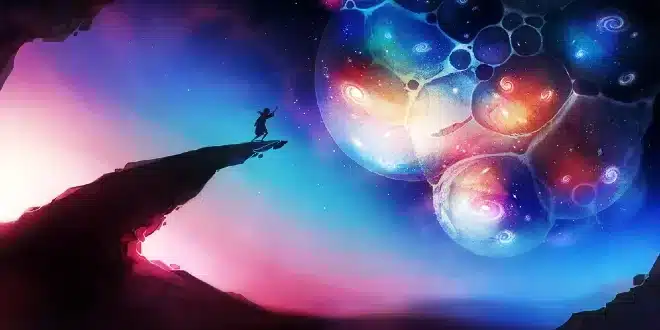Our universe is constantly expanding, and one intriguing theory suggests the presence of an anti-universe might explain this phenomenon, akin to the multiple worlds concept found in science fiction. Naman Kumar, a PhD student at the Indian Institute of Technology (IIT), proposes this theory in recent papers published in “Gravitation and Cosmology” and “Europhysics Letters.”
Kumar explores the universe’s earliest stages, incorporating the concept of quantum matter generation. He suggests that for every particle of matter created during the Big Bang, a corresponding particle of antimatter was also produced. This implies that the birth of our universe simultaneously spawned an anti-universe.
According to his hypothesis, when our universe came into being, it was mirrored by this anti-universe, which behaves oppositely. Kumar believes this dual existence could be the reason behind the rapid expansion of both universes.
In a discussion on ScienceX, Kumar elaborates, “After delving into dark matter and dark energy, I’ve concluded that we must either uphold general relativity and accept our residence in a dark universe filled with dark matter and dark energy, or embrace the concept of a higher dimensional multiverse.”
If Kumar’s assertions hold, it suggests that humanity has unknowingly existed within a multiverse. This idea has become a popular theme explored in various TV shows and films, portraying alternate realities parallel to our own.
In a separate but similarly provocative theory, some scientists argue that based on certain cosmological models, the universe and by extension, life, should not exist. They challenge these models through the lens of primordial black holes and the Higgs boson particle, which is crucial for giving mass to other particles. They speculate that if the Higgs field dropped to its lowest energy state, it would drastically alter physical laws, potentially creating “bubbles” of space that do not adhere to known physics.
Furthermore, if primordial black holes impacted the Higgs field shortly after the Big Bang, they could have prompted these bubbles, suggesting that our universe should have ceased to exist almost as soon as it began. This highlights ongoing mysteries and challenges in understanding the universe’s origins and the laws that govern it.


